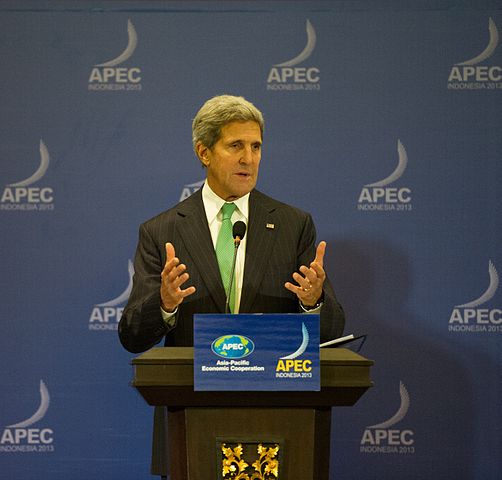
The US Rebalance Off-Balance: Missing the party in Asia
In April 2013, Joseph Yun, then the US Acting Assistant Secretary for East Asia and the Pacific, addressed a Senate Foreign Affairs Subcommittee on the US policy of “rebalance” towards Asia. He argued that this rebalancing, originally introduced by the Obama administration in 2011 as the “pivot”, reflected the “profound recognition that the future prosperity and security of our nation will be defined by events and developments in the region”. Yun went on to explain how the US commitment towards the Asia-Pacific can best be demonstrated, noting that while security and defence-related cooperation is important, US “allies and partners… also tell us that, as we deepen our military engagement, we should continue also to emphasize the diplomatic, development, economic, and people-to-people engagement in order to demonstrate our longer-term commitment to our rebalance strategy.” (Yun Testimony, Washington DC, 25 April 2013).
President Obama’s intended visit to the region in early October 2013 was supposed to be a key plank in demonstrating that commitment. Obama was to have attended the East Asia Summit in Brunei, and the Asia-Pacific Economic Conference held in host-country Indonesia – a country that because of its influence in ASEAN, the G20 and the Organization of Islamic Conference, deserves sustained attention. In Kuala Lumpur, Obama would have attended the Global Entrepreneurship Summit. More importantly still, it would have been the first time that a sitting US president has visited Malaysia since 1966. Obama was also due to be in the Philippines in order both to demonstrate that the US remains a loyal ally when there is a perceived increased threat from China, but probably also to give the message that Manila needs to stay in step with its ASEAN neighbours on the South China Sea dispute and not surprise them with diplomatic positions that leave them nonplussed and that would likely exacerbate the issue.

Moving away from the end of history to a sustainable history
Two decades ago, the ‘End of History’, à la Francis Fukuyama, seemed a plausible prediction for many in the West. At least, it was a prophecy many hoped would turn into a self-fulfilling prophecy. In the climate of reinvigorated faith in the virtues of liberal democracy post-1989, freedom and democracy were two common buzzwords that indeed seem to carry a strong promise for the future. They also seemed indissolubly linked and interchangeable.
Western-type liberal democracy in its current form remains the most tested and successful accountable governance model in history. However, as a slogan for global political change in the 21st century, it needs to be re-examined both in terms of its applicability to all forms of societies and for making current democratic societies more inclusive. The range of events now in the spotlight of international relations – such as the Arab Spring – has further emphasized that the bid for leadership change, be it highly authoritarian, might in fact be premised on a quest for something more wholesome than just political freedom.
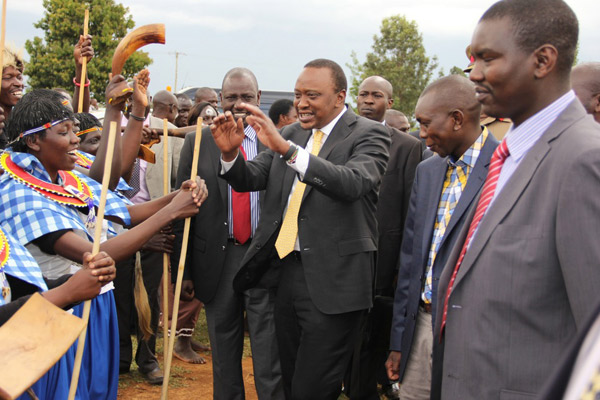
The lack of trust at the heart of Kenya’s democracy
Trust is critical to democracy. Citizens that trust each other not to exploit the system and more likely to pay tax and to follow the rules themselves. Leaders who trust each other are less likely to resort to violent strategies and more likely to accept the results of controversial political processes. As a result, the lack of trust at the heart of Kenyan politics is a major barrier to the consolidation of democracy.
Kenyans do not trust each other as much as Tanzanians. The World Values Survey, which asks citizens around the world about their activities, beliefs and opinions, has consistently found that Kenyans are less trusting than their counterparts on the other side of the border.
Indeed, compared to many societies in Africa, Kenyans are less likely to say that they trust people they don’t know, and less likely to say that they trust people they do know.
At the same time, domestic opinion polls regularly find that a majority of Kenyans lack trust in some of the county’s most important democratic institutions.
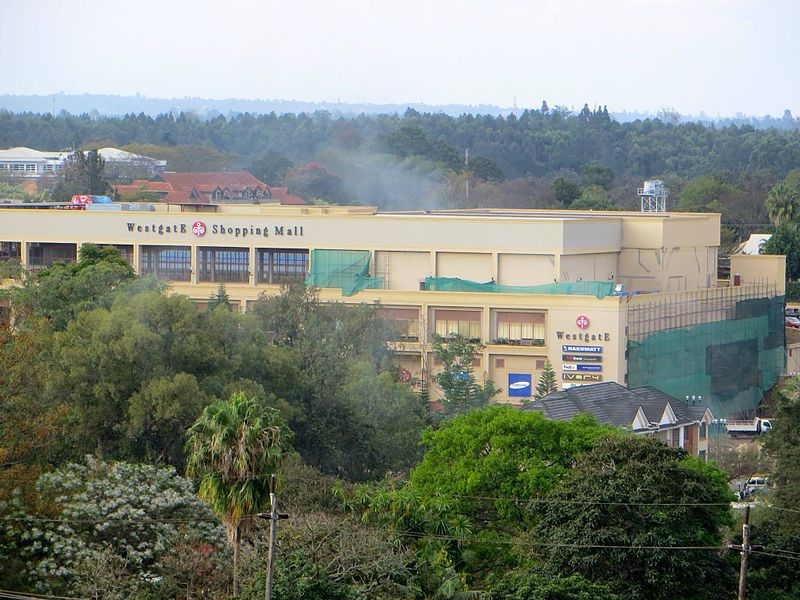
How to respond to the Nairobi terrorist attacks
Following the terrorist attack on the Westgate Mall in Kenya, there have been calls for the government to pursue a number of different strategies which, if they are implemented on their own, they are likely to fail.
An integrated approach is the only way to secure Kenya. But even this will have little effect unless it goes hand in hand with a serious attempt to reform the military and the police.
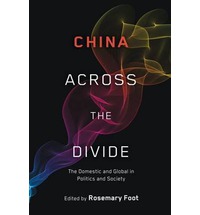
Q&A: China Across the Divide: the domestic and global in politics and society
I recently interviewed Professor Rosemary Foot about her new book, China Across the Divide: the domestic and global in politics and society (New York: Oxford University Press, 2013), as part of Politics and Spires’s OxOn China series.
NH: What is the book about?
RF: The book’s main argument is that, as students of international relations, we need to do more to collapse the divide between the domestic and global spheres of analysis. I make this argument with special reference to China, but I think it can be applied to other countries. I have chosen three main approaches to illustrate this phenomenon of the interconnectedness between the global and domestic levels of analysis. The first section of the book looks at ideas emerging from within China itself, at both mass and elite levels, about the country’s place in the world and how it should conduct its external relations. The argument is not that these ideas determine policy decisions, but help to shape, or set the broad contours of, the decisions that are arrived at. The second section looks at involvement in inter-societal enmeshments between China and other countries, and both the intended and unintended consequences of these linkages. This part of the book looks at the ways in which these non-state relations are transforming not only China itself but also the world of which it is a part. The third section focuses on three major global issues that are salient or intrusive at the domestic level and which require either some alterations in domestic ways of life or generate resistance at the domestic level to that intrusiveness.
NH: What inspired you to write/edit it?
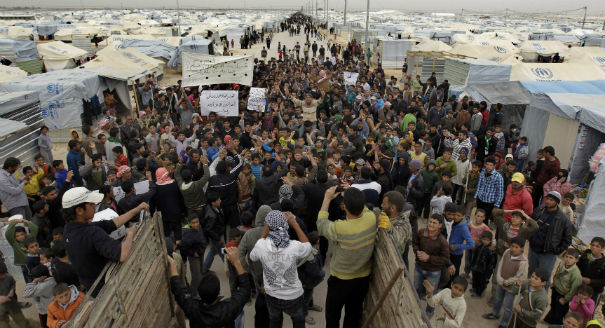
The cost of Syrian refugees
Recent estimates place the total number of Syrian refugees in Jordan at over 500,000. Zaatari refugee camp has become the fourth largest city in Jordan by population—it may not be much of a home, but each refugee costs the Jordanian government 2,500 dinars ($3,750) to host per year. The cost of Syrian refugees is putting a tremendous strain on the economy and is affecting the patronage systems that have ensured tribal loyalty to Jordan’s monarchy in the past. In addition to increasing resentment within the tribal population, the presence of Syrian refugees has also provided a boost in support for the Muslim Brotherhood, Jordan’s best-organized opposition, thereby adding to the tension the Hashemite Kingdom faces.
Jordan’s ability to absorb Syrian refugees has become a growing issue. Its fiscal position has deteriorated since the beginning of the Arab Spring; hosting 500,000 refugees has already cost Jordan over $800 million since the Syrian war began, and unrest across the Arab world, particularly in neighboring Syria, has cost Jordan’s economy as much as $4 billion. Furthermore, foreign assistance, on which Jordan was able to rely while dealing with the influx of Iraqi refugees, is insufficient. Prime Minister Abdullah Ensour recently stated in an interviewthat “the foreign assistance extended to Jordan is not enough in the face of the extraordinary numbers of Syrian refugees who have sought a safe haven in the Kingdom since the start of the Syrian conflict in March 2011.”
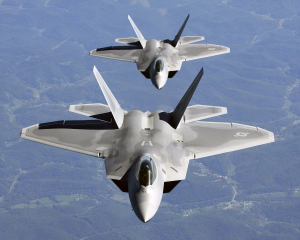
The legality of military action in Syria: humanitarian intervention and the responsibility to protect
It now seems fairly clear that the US and the UK are set to take military action in Syria in the coming days in response to the recent chemical attacks there. The UK Prime Minister, UK Foreign Secretary and the UK Secretary of State for Defence have all asserted that any action taken in Syria will be lawful. But on what grounds will military action in Syria be lawful. As is well known, United Nations Charter prohibits the use of force in Art. 2(4), as does customary international law. The UN Charter provides 2 clear exceptions to the prohibition of the use of force: self defence and authorization by the UN Security Council. It is almost certain that there will be no Security Council authorization. In a previous post, I considered the possibility of a (collective) self defence justification for the use of force in response to a use of chemical weapons. The scenario contemplated then is very different from the situation that has emerged, and the language used, at least by the UK, does not hint at a use of force on the basis of national interest. However, President Obama in a CNN interview last week did seem to speak of self defence when he said “there is no doubt that when you start seeing chemical weapons used on a large scale … that starts getting to some core national interests that the United States has, both in terms of us making sure that weapons of mass destruction are not proliferating, as well as needing to protect our allies, our bases in the region.” A justification for force on this basis would sound like preemptive self defence in a way that is very close to the Bush doctrine. I find it hard to see the Obama administration articulating a legal doctrine of preemptive self defence claim in this scenario.

Now East Africa Faces the Resource Curse
Anniversaries make us reflect on our past. In this of all years, the temptation to look back on the highs and lows of nationhood is almost overwhelming.
Like most people approaching their senior years, independent Kenya is marking its 50th birthday by attempting to cling to its youth. A Kenyatta is back in State House and an Odinga faces an uncertain future of political isolation.
A system of devolved government is fighting for its life. The government is underpinned by an alliance of Kikuyu and Kalenjin. Even Moi seems to have broken his exile from public life. Most important of all, the economy is set for a period of sustained growth.
But reliving the Swinging 60s threatens to let the songs of the youth drown out the noise of real changes taking place.









